Related Research Articles
Haydn Austin Bunton is a former Australian rules footballer and coach. The son of the legendary Haydn Bunton Sr., Bunton Jr. played for North Adelaide and Norwood in the South Australian National Football League (SANFL), as well as Swan Districts and Subiaco in the Western Australian National Football League (WANFL).
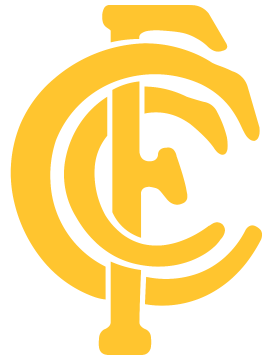
The Claremont Football Club, nicknamed Tigers, is an Australian rules football club based in Claremont, Western Australia, that currently plays in the West Australian Football League (WAFL) and WAFL Women's (WAFLW). Its official colours are navy blue and gold. Formed as the "Cottesloe Beach Football Club" in 1906, the club entering the WAFL in 1925 as the "Claremont-Cottesloe Football Club"', changing its name to the present in 1935. Claremont have won 12 senior men's premierships since entering the competition, including most recently the 2011 and 2012 premierships.

The East Perth Football Club, nicknamed the Royals, is an Australian rules football club based in Leederville, Western Australia, current playing in the West Australian Football League (WAFL) and WAFL Women's (WAFLW). Formed in 1902 as the Union Football Club, the club entered the WAFL in 1906, changing its name to East Perth. It won its first premiership in 1919, part of a streak of five consecutive premierships. Overall, the club has won 17 premierships, most recently in 2002. The club is currently based at Leederville Oval, which it shares with the Subiaco Football Club, having previously played home games at Wellington Square and Perth Oval from 1910 to 1999.
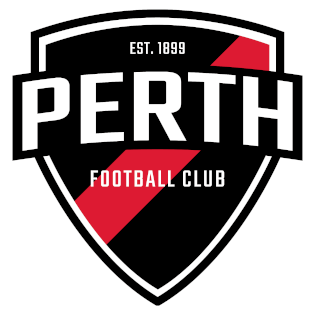
The Perth Football Club, nicknamed the Demons, is an Australian rules football club based in Lathlain, Western Australia, currently playing in the West Australian Football League (WAFL).
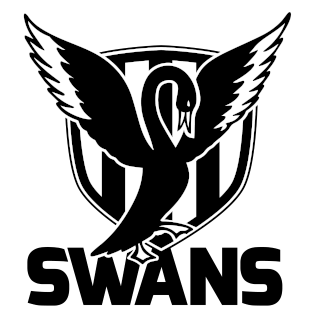
The Swan Districts Football Club, nicknamed the Swans, is an Australian rules football club playing in the West Australian Football League (WAFL) and WAFL Women's (WAFLW). The club is based at Bassendean Oval, in Bassendean, an eastern suburb of Perth, Western Australia. The club was formed in 1933, and joined the then-Western Australian National Football League (WANFL) in 1934, acting as a successor to the Midland Junction Football Club, which had disbanded during World War I, in the Perth Hills region.

The Subiaco Football Club, nicknamed the Lions and known before 1973 as the Maroons, is an Australian rules football club in the West Australian Football League (WAFL) and WAFL Women's (WAFLW). It was founded in 1896, and admitted to the WAFL in 1901, along with North Fremantle. The club is currently based at Leederville Oval, having previously played at Subiaco Oval.
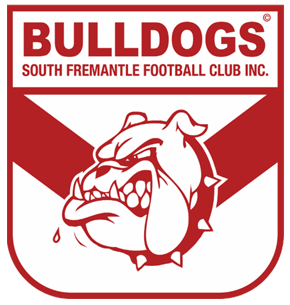
South Fremantle Football Club is an Australian rules football club based in Fremantle, Western Australia. The club plays in the Western Australian Football League (WAFL) and the WAFL Women's (WAFLW), commonly going by the nickname the Bulldogs. Since its founding, the club has won 14 WAFL premierships, the most recent of them in 2020.
John Herbert Todd was an Australian rules footballer who played for the South Fremantle Football Club in the West Australian National Football League (WANFL). He also coached with success at East Fremantle, South Fremantle, Swan Districts, West Coast, and Western Australia. The only coach that comes close to John Todd in games coached is Jock McHale, who coached Collingwood. Mick Malthouse later broke McHale’s coaching record for games coached, but McHale still has won the most VFL/AFL premierships (8). Malthouse won 3 Premierships. A State Memorial service was held on 21 August 2024 for John Todd.
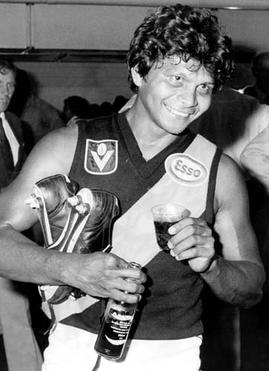
Maurice Joseph Rioli Sr. was an Australian rules footballer who represented St Mary's Football Club in the Northern Territory Football League (NTFL), South Fremantle in the West Australian Football League (WAFL) and Richmond in the Victorian Football League.
Hugh "Bonny" Campbell was an Australian rules footballer who played 188 West Australian Football League (WAFL) games and kicked 630 goals. He was a star full forward in the WAFL, a regular West Australian interstate representative, and famously for kicked 23 goals in a game for Western Australia against Queensland at the 1924 Hobart Carnival.
The 1979 WANFL Grand Final was an Australian rules football game contested between the East Fremantle and South Fremantle Football Clubs, held at Subiaco Oval on 22 September 1979. It was the 49th annual Grand Final of the Western Australian National Football League, staged to determine the premiers for the 1979 WANFL season. The match, attended by 52,781 spectators, the record crowd for a football match at Subiaco, was won by East Fremantle by a margin of 33 points, marking that club's 25th premiership victory.
The 1997 Westar Rules Grand Final was an Australian rules football game contested between the South Fremantle Football Club and the East Fremantle Football Club, on 21 September 1997 at Subiaco Oval, to determine the premier team of the Westar Rules for the 1997 season. South Fremantle won the game by 6 points, 13.7 (85) to 11.13 (79), with David Hynes of South Fremantle winning the Simpson Medal as best on ground.
Phil Cronan is an Australian rules footballer who played for St Kilda and Footscray in the Victorian Football League (VFL) in between 1984 and 1988.
The 1932 WANFL season was the 48th season of the Western Australian National Football League. The premiership was won by West Perth for the first time since 1905. The Cardinals’ win ended both a run of four consecutive premierships by East Fremantle, which won its fifth of seven successive minor premierships but lost both finals it played to be eliminated in the preliminary final, and West Perth's longest premiership drought in its history. West Perth's win was highlighted by the success of champion full forward Ted Tyson, who headed the goalkicking with eighty-four goals including a record eight in the Grand Final[a]. Tyson went on to kick an unprecedented 1,203 goals during a twelve-season career with the Cardinals, but their rise from winning only six matches in 1931 was due to the development of second-year defender Max Tetley, the discovery of a third pre-war Cardinal stalwart in Norm McDiarmid,[b] brother of star ruckman Jack, plus further outstanding youngsters Jim Morgan and Bob Dalziell.
The 1977 WANFL season was the 93rd season of the Western Australian National Football League in its various incarnations. It followed on from the previous season's high scoring to set another record for the highest average score in WANFL history at 109.57 points per team per game, which was to be broken substantially in the following few years due to the introduction of the interchange rule allowing for a faster game with less exhausted players. 1977 was in fact that last WA(N)FL season with no score of over 200 points until 1988.
The 1937 WANFL season was the 53rd season of the Western Australian National Football League. The season saw numerous notable highlights, including:
- Five players[a] kicked 100 goals, a number equalled in the major leagues of VFL/AFL, VFA/VFL, or SANFL, only in the 1939 VFA season.[b]
- Frank "Scranno" Jenkins won the Sandover Medal in his debut season of senior football with a record high under the 3-2-1 voting system of 34 votes.
- In the second round, East Fremantle broke their own 21-year-old record for the highest score in league history.
- East Perth drew three games in one season, a feat equalled in major Australian Rules Leagues only by VFA club Moorabbin in 1958 and West Perth in 1960. The Royals could easily have drawn a fourth game but for crowd acclamation preventing umpires from hearing the bell against Subiaco on Foundation Day. No senior Australian Rules team at any level is known to have tied four matches in a season, but Geelong’s Under-19s did so in 1971.
- Swan Districts, with Ted Holdsworth kicking at least six goals in each of the first ten games, reached their first finals series in only their fourth WANFL season. Holdsworth was to reach his 100 goals in two fewer games than George Doig took in his 152-goal 1934 season, but concussion and a broken hand eliminated the prospect of a new record.
The 2007 WAFL season was the 123rd season of the various incarnations of the West Australian Football League. The season saw Subiaco, confounding the critics who expected them to slip after winning their second premiership in three years, win their second consecutive premiership for the first time in ninety-four seasons, with injury-plagued forward Brad Smith overcoming two reconstructions that wiped out 2005 and 2006 to kick 126 goals for the season, the most in the WAFL since Warren Ralph kicked 128 for Claremont in 1983. Smith also achieved the unique feat for a full-forward of winning the Simpson Medal in the Grand Final.
The 1939 WANFL season was the 55th season of the various incarnations of the Western Australian National Football League. It is best known for West Perth's record losing streak of twenty-seven matches up to the fifteenth round, an ignominy equalled by Peel Thunder in their formative years but never actually beaten. The Cardinals finished with the worst record since Midland Junction lost all twelve games in 1917, and were the first WANFL team with only one victory for twelve seasons. In their only win, champion forward Ted Tyson became the first West Australian to kick over one thousand goals and he just failed to replicate his 1938 feat of leading the goalkicking for a bottom club. Subiaco, despite a second Sandover win from Haydn Bunton won only three matches, and Swan Districts, affected by the loss of star goalkicker Ted Holdsworth to Kalgoorlie, began a long period as a cellar-dweller with a fall to sixth.
The 1941 WANFL season was the 57th season of the various incarnations of the Western Australian National Football League. Owing to the drain of players to military service in World War II, the league was forced to suspend the reserves competition until 1946, and ultimately this was to be the last season of senior football in Perth until 1945 as the supply of available players became smaller and smaller and the Japanese military threatened northern Western Australia.
References
- ↑ The Footballers. St George Books. 1985. p. 180.
- ↑ Poat, Peter (1980). 1980 West Australian Football Register. p. 107.
- ↑ Poat, Peter (1980). 1980 West Australian Football Register. p. 127.
- ↑ Poat, Peter (1980). 1980 West Australian Football Register. p. 131.
- ↑ Poat, Peter (1980). 1980 West Australian Football Register. pp. 179–180.
- ↑ Poat, Peter (1980). 1980 West Australian Football Register. pp. 181–183.
- ↑ Poat, Peter (1980). 1980 West Australian Football Register. pp. 11–19.
- ↑ Poat, Peter (1981). 1981 West Australian Football Register. p. 173.
- ↑ "Brilliant Bulldogs". Full Points Footy. Archived from the original on 14 May 2011.
{{cite web}}: CS1 maint: unfit URL (link) - ↑ Poat, Peter (1981). 1981 West Australian Football Register. p. 42.